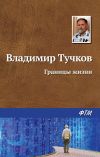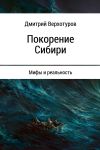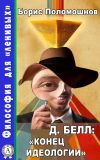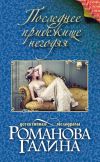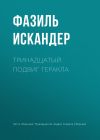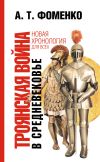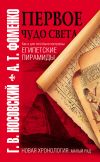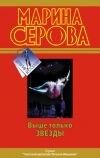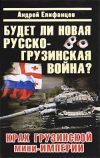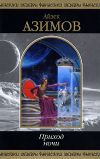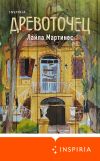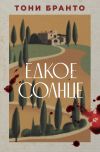Текст книги "Арийский миф в современном мире"
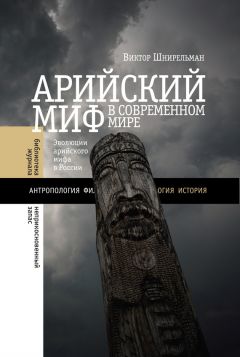
Автор книги: Виктор Шнирельман
Жанр: Языкознание, Наука и Образование
Возрастные ограничения: +12
сообщить о неприемлемом содержимом
Текущая страница: 67 (всего у книги 67 страниц)
Goodrick-Clark, Nicholas 2002. Black sun. Aryan cults, esoteric Nazism and the politics of identity. N. Y.: New York University Press.
Gorshenina S. 2012. L’archéologie russe en Asie Centrale en situation coloniale: quelques approaches // Etudes de Lettres. Etudes pontiques. Histoire, historiographie et sites archéologiques du bassin de la mer Noire (sur la dir. de Pascal Burgunder), Université de Lausanne, Institut d’archéologie, n° 290, no. 1–2. P. 183–219.
Gorshenina S., Rapin C. 2001. De Kaboul à Samarcande. Les archéologues en Asie Centrale. Paris: Gallimard.
Gould, W. 2004. Hindu nationalism and the language of politics in late colonial India. Cambridge: Cambridge Univ. Press.
Grant, W. J. 2005. The space of the nation: an examination of the spatial productions of Hindu nationalism // Nationalism and ethnic politics, vol. 11: 321–347.
Griffin, Roger 1993. Europe for the Europeans: fascist myths of the New Order, 1922–1992. Oxford (http://home.alphalink.com.au/~radnat/theoroes-right/theory1.html).
Griffiths, F. 1991. The Arctic in the Russian identity // L. W. Brigham (ed.). The Soviet maritime Arctic, p. 83 – 107. London: Belhaven Press.
Gugenberger, Eduard & Schweidlenka, Roman 1993. Die Fäden der Nornen. Zur Macht der Mythen in politischen Bewegungen. Wien: Verlag für Gesellschaftskritik.
Guseynova, Sevil 2008. Presentations of Islam in secondary secular schools in contemporary Azerbaijan // Internationale Schulbuchforschung. Jahrg. 4, Bd. 30: 841–853.
Hagemeister, Michael 1997. Russian cosmism in the 1920s and today // B. G. Rosenthal (ed.). The Occult in Russian and Soviet culture, p. 185–202. Ithaca and London: Cornell Univ. Press.
Hagemeister, Michael 2004. Anti-Semitism, occultism and theories of conspiracy in contemporary Russia – the case of Ilya Glazunov // V. Paperni, W. Moskovich (eds.). Anti-Semitism and Philo-Semitism in the Slavic World and Western Europe, p. 235–241. Haifa-Jerusalem.
Hagemeister, Michael 2011. The conquest of space and the bliss of the atoms: Konstantin Tsiolkovskii // E. Maurer, J. Richers, M. Rüthers, C. Scheide (eds.). Soviet space culture: Cosmic enthusiasm in socialist societies, p. 27–41. N. Y.: Palgrave MacMillan.
Hamilton, A. 1971. The appeal of fascism. A study of intellectuals and fascism, 1919–1945. New York: MacMillan.
Harvey, Graham 1996. Heathenism: a North European pagan tradition // Ch. Hardman & G. Harvey (eds.). Paganism today, p. 49–64. London: Thorsons.
Haslip-Viera G., Ortiz de Montellano B., Barbour W. 1997. Robbing Native American Cultures: Van Sertima’s Afrocentricity and the Olmecs // Current Anthropology, vol. 38, no. 3: 419–441.
Heller, Leonid 2012. Away from the Globe. Occultism, esotericism and literature in Russia during the 1960s – 1980s // B. Menzel, M. Hagemeister, B. G. Rosenthal (eds.). The New Age of Russia. Occult and esoteric dimensions, p. 186–210. Berlin: Otto Sagner.
Hermand, Jost 1992. Old dreams of a new Reich: Volkisch utopias and national socialism. Bloomington: Indiana University Press.
History of Kazakhstan 1998. History of Kazakhstan. Essays. Almaty: Gylym.
Hitler, Adolf 1971. Mein Kampf. Boston: Houghton Mifflin.
Hobsbawm, Eric 1992. Ethnicity and nationalism in Europe // Anthropology today, vol. 8, no. 1: 3 – 13.
Ilaiah, Kancha 2009. Post-Hindu India. A Discourse in Dalit-Bahujan, Socio-Spiritual and Scientific Revolution. Osmania University, Hyderabad: Sage.
Ivakhiv, Adrian 2005a. In search of deeper identities: Neo-paganism and “Native Faith” in contemporary Ukraine // Nova Religio: The Journal of Alternative and Emergent Religions, vol. 8, no. 3: 7 – 38.
Ivakhiv, Adrian 2005b. Nature and ethnicity in East European Paganism: an environmental ethic of the religious right? // The Pomegranate, vol. 7, no. 2: 194–225.
Jacob-Friesen, K. H. 1934. Herman Wirths Ura-Linda-Chronik und die deutschen Vorgeschichtsforscher // Nachrichtenblatt fűr deutsche Vorzeit. Bd. 10, no. 6. S. 130–135.
Jaffrelot, Ch. 1996. The Hindu nationalist movement in India. N. Y.: Columbia Univ. Press.
Jaffrelot, Ch. 1997. The idea of Hindu race in the writings of Hindu nationalist ideologues in the 1920s and 1930s: a concept between two cultures // P. Robb (ed.). The concept of race in South Asia, p. 327–354. Delhi: Oxford Univ. Press.
Jain, G. 1993. Limits of the Hindu Rashtra // K. Elst (ed.). Ayodhya and after. New Delhi: Voice of India.
Johnson, G. 1973. Provincial politics and Indian nationalism. Cambridge: Cambridge University Press.
Jones, K. W. 1976. Arya Dharm. Hindu consciousness in 19th-century Punjab. Berkeley: Univ. of California Press.
Jordan, Paul 2001. The Atlantis Syndrom. Gloucestershire: Sutton Publishing Limited.
Kak, S. C. 1989. Indus writing // The Mankind Quarterly, vol. 30, no. 1–2: 113–118.
Kak, S. C. 1992. The Indus tradition and the Indo-Aryans // The Mankind Quarterly, vol. 32, no. 3: 195–213.
Kaplan, Jeffrey 2002. The postwar paths of occult national socialism // Jeffrey Kaplan, Heléne Lööw (eds.). The cultic milieu: oppositional subcultures in an Age of Globalization. From Rockwell and Madole to Manson, p. 225–264. Walnut Creek: Altamira.
Karve, I. 1932. The Parasurama myth // Journal of the University of Bombay, July 1932, vol. 1, no. 1: 115–139.
Katz, Jacob 1986. The darker side of genius: Richard Wagner’s Anti-Semitism. Hanover: University Press of New England.
Keer, Dh. 1969. Lokamanya Tilak. Father of Indian freedom struggle. Bombay: Popular Prakashan.
King, Christine Elizabeth 1982. The Nazi state and the new religions: five case studies in non-conformity. N. Y.: The Edwin Mellen Press.
Korey, William 1995. Russian Antisemitism, Pamyat, and the Demonology of Zionism. Chur: Harwood Academic Publishers.
Kotani, Hiroyuki 2000. Historical formation of Hindu identity in relation to British colonial rule // H. Kotani, T. Fujii, F. Oshikawa (eds.). Fussing modernity: appropriation of history and political mobilization in South Asia, p. 5 – 20. Osaka: National Museum of Ethnology.
Kuzio, Taras 1998. Ukraine: State and nation building. London and New York: Routledge.
Lamberg-Karlovsky, C. C. 2002. Archaeology and language: The Indo-Iranians // Current Anthropology, vol. 43, no. 1: 63–88.
Laqueur, Walter 1993. Black hundred. The rise of the extreme right in Russia. N. Y.: Harper Collins.
Laruelle, Marlene 2005. Mythe aryen et rêve imperial dans la Russie du XIX-e siècle. Paris: CNRS-Éditions.
Laruelle, Marlene 2007. The return of the Aryan myth: Tajikistan in search of secularized national ideology // Nationalities papers, vol. 35, no. 1: 51–70.
Lefkowitz, Mary 1997. Not out of Africa. How Afrocentrism became an excuse to teach myth as history. N. Y.: Basic Books.
Lele, Jayant 2000. By faith alone: history as a weapon in the politics of hindutva // H. Kotani, T. Fujii, F. Oshikawa (eds.). Fussing modernity: appropriation of history and political mobilization in South Asia, p. 21–73. Osaka: National Museum of Ethnology.
Leube, Achim 1998. Zur Ur– und Frühgeschichtsforschung in Berlin nach dem Tode Gustav Kossinnas bis 1945 // Ethnographische-Archäologische Zeitschrift, Bd. 39: 373–427.
Lewis, Bernard 1986. Semites and Anti-Semites. An inquiry into conflict and prejudice. N. Y.: W. W. Norton & Company.
Lubin, Nancy 1981. Assimilation and retention of ethnic identity in Uzbekistan // Asian affairs, vol. 12, pt. 3. P. 277–285.
MacDonald, Kevin C., Frank Y. C. Hung, Harriet Crauford 1995. Prehistory as propaganda // Papers from the Institute of Archaeology, vol. 6: 1 – 10.
Madhivanan, R. 1994. Phonetic value of the Indus script. Adyar, Madras: Tamil Canror Peravai.
Maha Vira 1979. Maha Vira. Spring Glen, N. Y.: The Ukrainian Native Faith.
Mallory, James P. 1989. In search of the Indo-Europeans: language, archaeology and myth. London: Thames and Hudson.
Mallory, James P. 1997. The homelands of the Indo-Europeans // R. Blench, M. Spriggs (eds.). Archaeology and language I. Theoretical and methodological orientations, p. 93 – 121. London: Routledge.
Marchand, S. L. 1996. Down from Olympus. Archaeology and Philhellenism in Germany, 1750–1970. Princeton: Princeton Univ. Press.
Masaryk, Thomas G. 1968. Idealy humanitni. Praha: Melantrich.
McCann, W. J. 1990. “Volk und Germanentum”: the presentation of the past in Nazi Germany // P. Gathercole, D. Lowenthal (eds.). The politics of the past, p. 74–88. London: Unwin Hyman.
Menzel, Birgit 2012. Occult and esoteric movements in Russia from the 1960s to the 1980s // B. Menzel, M. Hagemeister, B. G. Rosenthal (eds.). The New Age of Russia. Occult and esoteric dimensions, p. 151–185. Berlin: Otto Sagner.
Misra, S. S. 1992. The Aryan problem: a linguistic approach. New Delhi: Munshiram.
Moscovici, Serge 1985. The age of the crowd. A historical treatise on mass psychology. Cambridge: Cambridge University Press.
Mosse, George L. 1966. The crisis of German ideology. Intellectual origins of the Third Reich. London: Weidenfeld and Nicolson.
Mosse, George L. 1970. Germans and Jews. The right, the left, and the search for a “Third force” in pre-Nazi Germany. New York: Grosset and Dunlap.
Mulot, Siehe Sibylle 1990. Wodin, Tunis und Inka. Die Ura-Linda-Chronik // Karl Corino (hers.). Gefälscht! Betrug in Politik, Literatur, Wissenschaft, Kunst und Musik, S. 263–275. Frankfurt am Main: Eichborn Verlag.
Nandi, R. N. 2001. Aryans revisited. Delhi: Munshiram Manoharlal.
Nayak B. U., Gosh N. C. 1992. New trends in Indian art and archaeology. New Delhi: Aditya Prakashan.
Noorani, A. G. 2002. Savarkar and Hindutva: the Godse Connection. New Delhi: LeftWord Press.
Olender, Maurice 1992. The language of Paradise: race, religion, and philology in the Nineteenth Century. Cambridge, Mass.: Harvard University Press.
Ortiz de Montellano, B. 1995. Multiculturalism, cult archaeology, and pseudoscience // F. B. Harrold & R. A. Eve (eds.). Cult archaeology and creationism, p. 134–151. Iowa City: University of Iowa Press.
Pandey, G. 1993. Which of us are Hindu // G. Pandey (ed.). Hindus and others – the question of identity in India today. New Delhi: Viking.
Panikkar, K. N. 2004. In the name of nationalism // Front Line, 16 March (http://www.countercurrents.org/comm-panikker160304.htm).
Phelps, Reginald H. 1963. “Before Hitler came”: Thule society and Germanen Orden // Journal of Modern History, vol. 35, no. 3: 245–261.
Poewe, Karla O. 2006. New religions and the Nazis. N. Y.: Routledge.
Poliakov, Leon 1974. The Aryan Myth. London: Basic Books.
Poliakov, Leon 1985. The History of anti-Semitism. Vol. 4. Suicidal Europe, 1870–1933. Oxford: Oxford University Press.
Pollock, Sheldon 1993. Deep Orientalism? Notes on Sanskrit and power beyond the Raj // C. A. Breckenridge, P. Van der Veer (eds.). Orientalism and the postcolonial predicament: perspectives on South Asia, p. 76 – 133. Philadelphia: University of Pennslvania Press.
Popov, Igor 2001. The New Barbarians // Fortean Times, August.
Quinn, Malcolm 1994. The swastika. Constructing the symbol. London and New York: Routledge.
Rahman, T. 1996. Languages of the Proto-Historic Indus Valley // The Mankind Quarterly, vol. 36, no. 3–4: 221–246.
Rajaram, N. S. 1993. Aryan invasion of India: the myth and truth. New Delhi: Voice of India.
Rajaram N. S., Frawley D. 1994. Vedic Aryans and the origins of civilization: a literary and scientific perspective. Ottawa and New Delhi: World Heritage Press.
Ram, Hoggay 2000. The immemorial Iranian nation? School textbooks and historical memory in post-revolutionary Iran // Nations and nationalism, vol. 6, no. 1: 67–90.
Ramaswami, S. 2001. Remains of the race: archaeology, nationalism and the yearning for civilization in the Indus valley // Indian economic and social history review, vol. 38, no. 2: 105–145.
Rao, Nandini 1994. Interpreting silences: symbol and history in the case of Ram Janmabhoomi / Babri Masjid // G. C. Bond and A. Gilliam (eds.). The social construction of the past: representation as power, p. 154–164. London: Routledge.
Rao, S. R. 1973. The Indus script – methodology and language // D. P. Agraval, A. Ghosh (eds.). Radiocarbon and Indian archaeology, p. 323–340. Bombay: Tata Institute of Fundamental Research.
Rao, S. R. 1979. Deciphering the Indian script // Indian and Foreign Review, vol. 17, no. 3: 13–18.
Rao, S. R. 1984. New light on Indus script and language // B. B. Lal, S. P. Gupta (eds.). Frontiers of the Indus civilization, p. 193–199. New Delhi.
Ratnagar, Sh. 2004. Archaeology at the heart of a political confrontation: the case of Ayodhya // Current Anthropology, vol. 45, no. 2: 239–249.
Ratnagar, Sh. 2007. The Aryan homeland debate in India // Ph. L. Kohl, M. Kozelsky, and N. Ben-Yehuda (eds.). Selective remembrance: archaeology in the construction, commemoration, and consecration of national pasts, p. 349–378. Chicago: Chicago University Press.
Renatus, Q. F. 1922. Svastika // Narodni Politika, r. 40, no. 337.
Reznik, Semen 1996. The Nazification of Russia: anti-Semitism in the post-Soviet era. Washington, D. C.: Challenge Publications.
Riasanovsky, N. V. 1952. Russia and the West in the teaching of the Slavophiles. Cambridge, Mass.: Harvard University Press.
Ringel, F. 1994. New England Neo-Pagans: medievalism, fantasy, religion // Journal of American culture, vol. 17, no. 3: 65–68.
Rollin, Henri 1939. L’Apocalypse de notre temps. Paris: Gallimard.
Rome Spechler, Dina 1990. Russian nationalism and Soviet politics // Lubomir Hajda, Mark Beissiger (eds.). The nationalities factor in Soviet politics and society, p. 281–304. Boulder: Westview.
Rose, P. L. 1992. Wagner: race and revolution. New Haven: Yale Univ. Press.
Rosenberg, Alfred 1930. Der Mythus des 20 Jahrhunderts. München: Hoheneichen Verlag.
Rosenthal, Bernice G. 1997. Political implications of the early twentieth-century occult revival // B. G. Rosenthal (ed.). The Occult in Russian and Soviet culture, p. 379–418. Ithaca and London: Cornell Univ. Press.
Saint-Yves d’Alveydre, Alexandre 1884. Mission des Juifs. Paris: Calmann Lévy.
Sarda, H. B. 1975. Hindu superiority – an attempt to determine the position of the Hindu race in the scale of nations. New Delhi.
Savarkar, V. D. 1969. Hindutva: who is Hindu? Bombay: S. S. Savarkar.
Schnapp, Alain 1977. Archéologie et nazisme // Quaderni di Storia, vol. 3, no. 5: 1 – 26.
See, Klaus von 2006. Ideologie und Philologie. Aufsätze zur Kulture– und Wissenschaftsgeschuchte. Heidelberg: Universitätsverlag Winter.
Sertima, Ian van. 1985. Editorial // Journal of African Civilizations, April, vol. 7, no. 1: 7 – 12.
Sethna, K. D. 1992. The problem of Aryan origins: from an Indian point of view. New Delhi: Aditya Prakashan.
Sharma, R. S. 1978. In defense of “Ancient India”. New Delhi: People’s Publishing House.
Sharma, R. S. 1993. The Aryan problem and the horse // Social Scientist, vol. 21, no. 7–8: 3 – 16.
Sharma, A. 1995. The Aryan question: some general considerations // G. Erdosy (ed.). The Indo-Aryans of Ancient South Asia: language, material culture and ethnicity, p. 177–191. Berlin: Walter de Gruyter.
Sharma, D. 2000. Science, culture and conflict in India // Cultural Dinamics, vol. 12, no. 2: 164–181.
Shavit, Yacov 2001. History in black. African-Americans in search of an ancient past. London: Frank Cass.
Sheehan, Th. 1981. Myth and violence: the Fascism of Julius Evola and Alain de Benoist // Social Research, vol. 48, no. 1: 45–73.
Shenfield, Stephen D. 2001. Russian fascism: traditions, tendencies, movements. Armonk, New York: M. E. Sharp.
Shnirelman, V. A. 1995. From internationalism to nationalism: forgotten pages of Soviet archaeology in the 1930s and 1940s // Ph. Kohl & C. Fawcett (eds.). Nationalism, politics and the practice of archaeology, pp. 120–138. Cambridge: Cambridge University Press.
Shnirelman, V. A. 1996a. Who gets the past? Competition for ancestors among non-Russian intellectuals in Russia. Washington, D. C. and Baltimore: Woodrow Wilson Center Press, Johns Hopkins University Press.
Shnirelman, V. A. 1996b. The faces of nationalist archaeology in Russia // M. Diaz-Andreu & T. C. Champion (eds.). Nationalism and archaeology in Europe, p. 218–242. London: UCL Press.
Shnirelman, V. A. 1998a. Russian Neo-pagan Myths and Antisemitism. Jerusalem: The Hebrew University.
Shnirelman, V. A. 1998b. Archaeology and ethnic politics: the discovery of Arkaim // Museum International, no. 198 (vol. 50, no. 2): 33–39.
Shnirelman, V. A. 1999. Passions about Arkaim: Russian Nationalism, the Aryans, and the Politics of Archaeology // Inner Asia, vol. 1, no. 2: 267–282.
Shnirelman, Victor A., 2002. The Myth of the Khazars and Intellectual Antisemitism in Russia, 1970s – 1990s. Jerusalem: Vidal Sassoon International Center for the Study of Antisemitism, The Hebrew University of Jerusalem.
Silberman, N. A. 1989. Between past and present. Archaeology, ideology, and nationalism in the modern Middle East. N. Y.: Anchor Books.
Skurlatov, V. 1982. A Code of Morals // S. F. Cohen (ed.). An end of silence. Uncensored opinion in the Soviet Union, p. 171–174. N. Y.: W. W. Norton.
Slapšak, B. 1993. Archaeology and the contemporary myths of the past // Journal of European Archaeology, vol. 1, no. 2: 191–195.
Slezkine, Yuri 1994. Arctic mirrors. Russia and the small peoples of the North. Ithaca and London: Cornell Univ. Press.
Smith, Anthony D. 1984. National identity and myths of ethnic descent // Research in social movements, conflict and change, v. 7: 95 – 130.
Solomos, J. and Back L. 1996. Racism and society. London: MacMillan Press.
Spear, P. 1961. India. A modern history. Ann Arbor: The University of Michigan Press.
Spielvogel, J. and Redles D. 1986. Hitler’s racial ideology: content and occult sources // Simon Wiesenthal Center Annual, vol. 3: 227–246.
Sternhell, Z. 1976. Fascist ideology // W. Laqueur (ed.). Fascism. A reader’s guide, p. 315–376. Cambridge: Cambridge University Press.
Stites, Richard 1992. Russian popular culture: entertainment and society since 1900. Cambridge: Cambridge University Press.
Stodolsky, Igor 2007. Cultural geopolitics in the New Russian Intelligentsia. A case study of Timur Novikov, artist and cultural ideologist, 1958–2002 // M. Henriksson, S. Bovnik (eds.). Contemporary art and nationalism, p. 126–153. Prishtine: Prishtine Institute for contemporary art “EXIT”.
Subtelny, Maria Eva 1994. The symbiosis of Turk and Tajik // Beatrice F. Manz (ed.). Central Asia in historical perspective, p. 45–61. Boulder: Westview.
Swarup, D. 1994. Editorial // Manthan, vol. 15, no. 2–3: 3–6.
Szporluk, Roman 1989. Dilemmas of Russian nationalism // Problems of communism, July-August, p. 15–35.
Talageri Shrikant G. 1993. The Aryan invasion theory. A reappraisal. New Delhi: Aditya Prakashan.
Talageri, Shrikant G. 1994. Invasion theory and Indian nationalism // Manthan, vol. 15, no. 2–3: 119–125.
Thapar, Romila 1989. Imagined religious communities? Ancient history and the modern search for a Hindu identity // Modern Asian Studies, vol. 23, no. 2: 209–231.
Thapar, Romila 1989–1991. Archaeology and language at the roots of Ancient India // Journal of the Asiatic Society of Bombay, vol. 64–66. P. 249–268.
Thapar, Romila 1996. The theory of Aryan race and India: history and politics // Social Scientist, vol. 24, no. 272–274: 3 – 29.
Thapar, Romila 2000a. Interpreting early India // Thapar, Romila. History and beyond. New Delhi: Oxford Uiversity Press.
Thapar, Romila 2000b. Time as a metaphor of history // Thapar, Romila. History and beyond. New Delhi: Oxford Uiversity Press.
Thapar, Romila 2000c. On historical scholarship and the uses of the past // Ethnic and racial studies, vol. 23, no. 3: 594–616.
Thapar, Romila 2000d. Hindutva and history. Why do Hindutva ideologues keep flogging dead horse // Frontline, October 2000: 15–16.
Trautmann, Thomas R. 1997. Aryans and the British India. Berkeley: Univ. of California Press.
Verma, K. C. 1984. The Aryans, the Veda and the Kaliyuga era of 3100 B. C. Varanasi: Dept. of Ancient Indian History, Culture and Archaeology.
Viereck, Peter 1965. Metapolitics. The roots of the Nazi mind. N. Y.: Capricorn Books.
Walicki, A. 1975. The Slavophile controversy. Oxford: Clarendon Press.
Weissmann, Karlheinz 1991a. Druiden, Goden, Weise Frauen. Freiburg: Herder.
Weissmann, Karlheinz 1991b. Schwarze Fahnen, Runenzeichen. Die Entwicklung der politischen Symbolik der deutschen Rechten zwischen 1890 und 1945. Dusseldorf: Droste.
Who is… 1984. Who is spiritual teacher Lev Sylenko. Spring Glen, N. Y.: The Ukrainian Native Faith.
Wilson, Andrew 2002. Elements of a theory of Ukrainian ethno-national identities // Nations and nationalism, vol. 8, no. 1: 31–54.
Wilson, Stephen 1982. Ideology and experience: antisemitism in France at the time of the Dreyfus affair. Rutherford, N. J.: Fairleigh Dickinson University Press.
Winn, Sh. M. M. 1982. Pre-writing in Southeastern Europe: the sign system of the Vinca culture ca. 4000 B. C. Calgary, Alta.: Western Publishers.
Williams, Stephen 1991. Fantastic archaeology. The wild side of North American prehistory. Philadelphia: University of Pennsylvania Press.
Wistrich, Robert S. 1991. Antisemitism. The longest hatred. London: Themes Methuen.
Witzel M., Farmer S. 2000. Horseplay in Harappa. The Indus Valley Decipherment Hoax // Frontline, September 30 – October 13.
Wiwjorra, Ingo 1996. German archaeology and its relation to nationalism and racism // Margarita Diaz-Andreu, Timothy Champion (eds.). Nationalism and archaeology in Europe, p. 164–188. London: UCL Press.
Wolpert, S. A. 1962. Tilak and Gokhale: revolution and reform in the making of modern India. Berkeley: Univ. of California Press.
Yanov, A. 1987. The Russian challenge and the year 2000. Oxford: Basil Blackwell.
Правообладателям!
Это произведение, предположительно, находится в статусе 'public domain'. Если это не так и размещение материала нарушает чьи-либо права, то сообщите нам об этом.